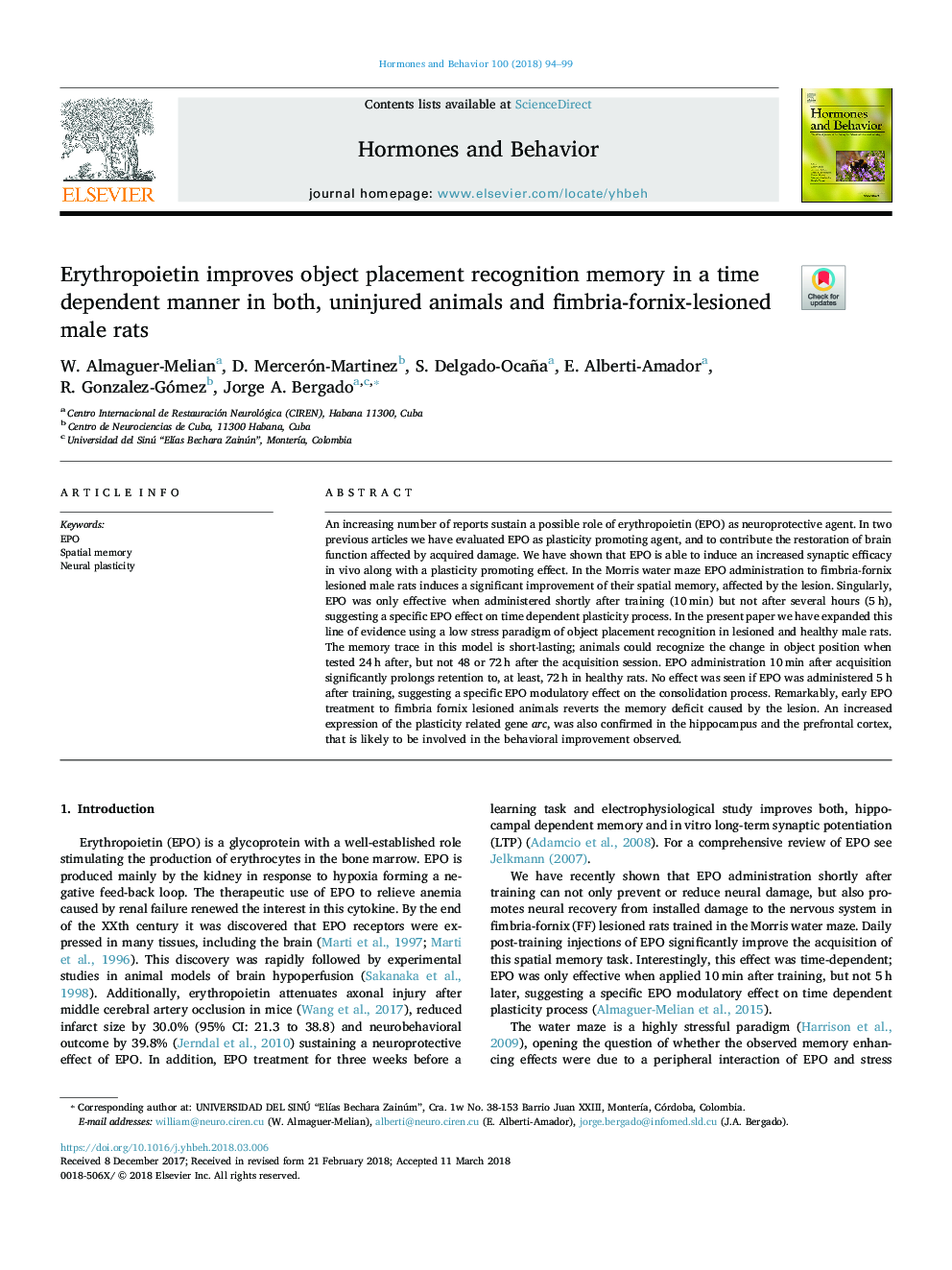| Article ID | Journal | Published Year | Pages | File Type |
|---|---|---|---|---|
| 6793927 | Hormones and Behavior | 2018 | 6 Pages |
Abstract
An increasing number of reports sustain a possible role of erythropoietin (EPO) as neuroprotective agent. In two previous articles we have evaluated EPO as plasticity promoting agent, and to contribute the restoration of brain function affected by acquired damage. We have shown that EPO is able to induce an increased synaptic efficacy in vivo along with a plasticity promoting effect. In the Morris water maze EPO administration to fimbria-fornix lesioned male rats induces a significant improvement of their spatial memory, affected by the lesion. Singularly, EPO was only effective when administered shortly after training (10â¯min) but not after several hours (5â¯h), suggesting a specific EPO effect on time dependent plasticity process. In the present paper we have expanded this line of evidence using a low stress paradigm of object placement recognition in lesioned and healthy male rats. The memory trace in this model is short-lasting; animals could recognize the change in object position when tested 24â¯h after, but not 48 or 72â¯h after the acquisition session. EPO administration 10â¯min after acquisition significantly prolongs retention to, at least, 72â¯h in healthy rats. No effect was seen if EPO was administered 5â¯h after training, suggesting a specific EPO modulatory effect on the consolidation process. Remarkably, early EPO treatment to fimbria fornix lesioned animals reverts the memory deficit caused by the lesion. An increased expression of the plasticity related gene arc, was also confirmed in the hippocampus and the prefrontal cortex, that is likely to be involved in the behavioral improvement observed.
Keywords
Related Topics
Life Sciences
Biochemistry, Genetics and Molecular Biology
Endocrinology
Authors
W. Almaguer-Melian, D. Mercerón-Martinez, S. Delgado-Ocaña, E. Alberti-Amador, R. Gonzalez-Gómez, Jorge A. Bergado,
